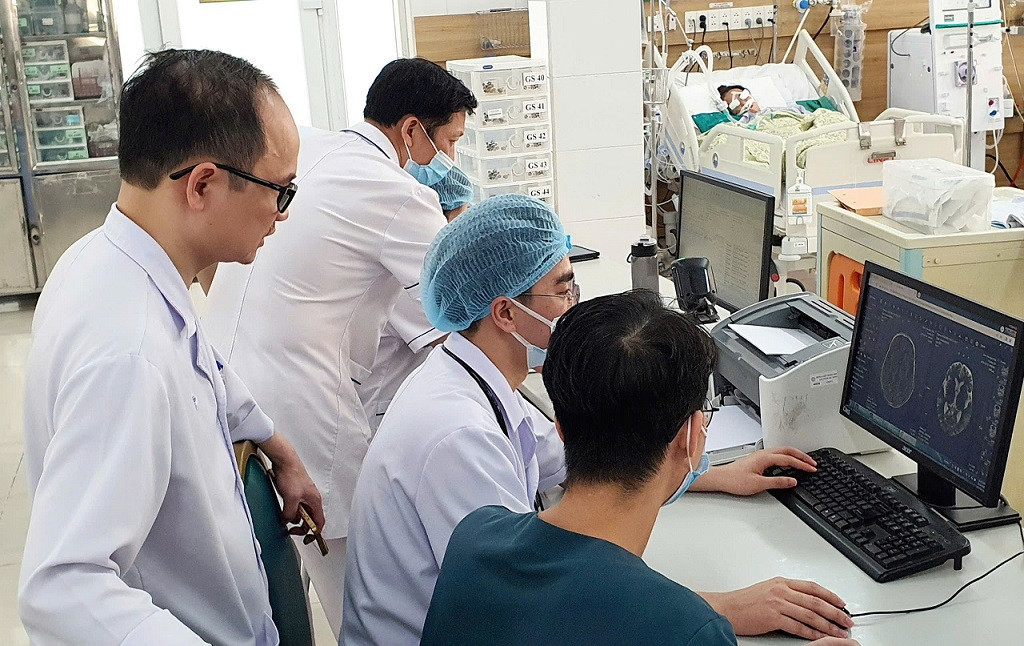
Dr Truong Hoang Hung, a clinician and lecturer at Texas Tech University in the US, said social media is increasingly flooded with self-proclaimed doctors and pharmacists offering health advice, even promoting cures for terminal diseases like cancer. Some even pose as “miracle healers,” steering the public toward “cure-all” potions, supplements, or training courses.
Hung identifies three red flags for identifying dubious doctors. First, those who constantly go online to advise on every case. Legitimate doctors also share health information with the community, but not for profit, so their posts are limited. They don’t have time to consult everywhere, anytime, and only address topics within their expertise.
Second, those who flaunt everything. These individuals craft an image of fame, flashing credentials, sometimes self-awarded expert titles. They focus on alarming conditions like strokes, heart disease, or cancer to hook followers.
Third, those who “promise the earth”. Hung notes that medicine is a science of uncertainty—no one can guarantee outcomes. When a doctor online vows to cure diseases, people should beware.
Dr. Ngo Van Ty from the Oncology Center at Hanoi Medical University Hospital advises digging deeper to judge online doctors’ integrity.
If someone boasts mastery from pediatrics to geriatrics, gynecology to urology, claiming to know it all, patients should doubt them. Many offer a few health tips before turning into key opinion leaders (KOLs) selling products.
For those exaggerating titles, Ty suggests cross-checking with their workplace.
“I’ve seen people who just take one or two short courses at a medical school, then brag about graduating from Hanoi Medical University or working at its hospital. Someone once asked me about a ‘colleague’ at my center—I saw their photo and had no clue who they were,” Ty said.
Lawyer Pham Van Hoc, Vice Chair of the Vietnam Private Hospital Association, commented that it seems that everyone who wears a white blouse can proclaim themselves as a doctor. He called on agencies to impose harsh penalties to deter these doctors.
Health clips on social media just give advice, and don’t diagnose or make prescriptions, so the owners of the clips are not breaching medical practice laws. However, false medical information can cost lives.
Doctors must take responsibility for their advice, and the behavior of selling misadvertised products violates the Advertising Law and should be subject to criminal charges.
Living in Phu Tho, Hoc has seen too many patients trusting online doctors and TikTok “healers” over legitimate practitioners, losing money and health.
In Bac Ninh, authorities once busted a case of 28 fake doctors selling medicines, yet similar scams persist daily, with patients still duped into buying unverified drugs. Hoc believes that stronger actions are necessary to stop the problem, adding that it is easy to track down the fake doctors because they show their faces on the internet and provide their phone numbers.
In other cases, the individuals appear on video clips with instructions and advice about diseases are real doctors, but they tend to exaggerate the risk of diseases, so as to persuade people to buy medicines and functional food they sell.
Nguyen Trung Nguyen, Director of the Poison Control Center at Bach Mai Hospital (Hanoi), said his unit regularly treats victims of online “healers”.
The common characteristic of the victims is that they believe online doctors and buy drugs based on the doctors’ advice, without consulting licensed practitioners. Many patients are hospitalized in a serious situation after treating themselves.
While some people are too trusting of doctors and harm themselves by buying drugs for self-treatment, other people don’t know who to believe because there are too many doctors appearing on social media who give contradictory advice.
Nguyen Trung Nguyen said that advertising misleading, unscientific cures harms patients, severely damages health, and risks high mortality.
“These actions are extremely dangerous to the community. Authorities must urgently intervene to stop this,” he said.
Phuong Thuy